Challenge Poverty Week 2020
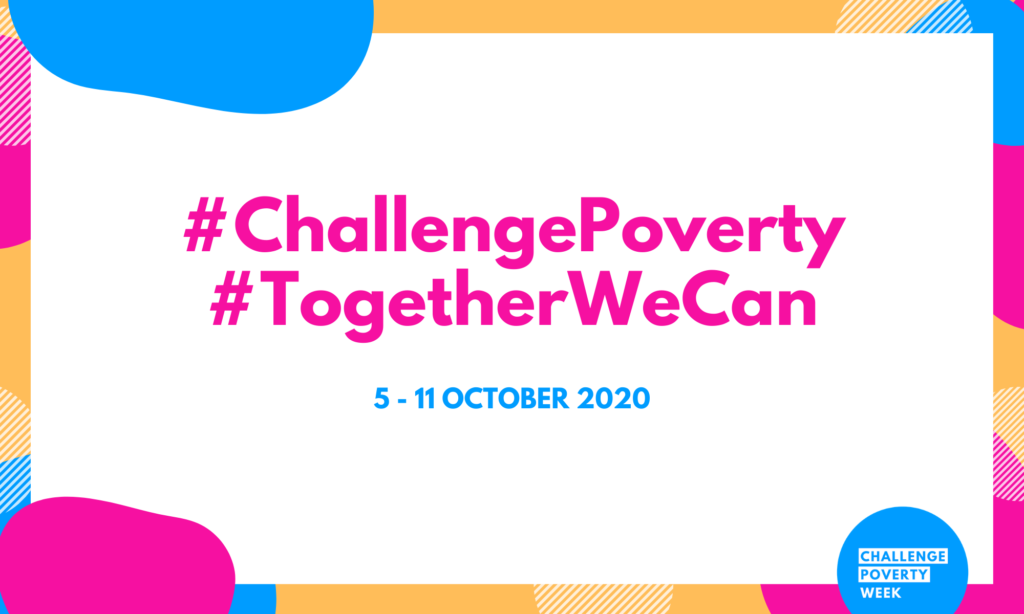
02/10/2020
News
Challenge Poverty Week (5-11th Oct.) is an opportunity for you to raise your voice against poverty and unite with others in calling for a more just and equal Scotland. Find out more about the aims and messages of the week and how you can get involved at the campaign website.
One Parent Families Scotland are getting involved by sharing some of our calls for action to bring an end to poverty in single parent families.
Director of One Parent Families Scotland Satwat Rehman said:
“This year’s Challenge Poverty Week feels more urgent than ever as we find ourselves in the midst of an economic crisis caused by the Covid-19 pandemic and resulting lockdown.
“As ever, the people who are hit hardest when times are tough are those who already had lower incomes, insecure work and who are balancing caring responsibilities with employment. Single parents, most of whom are women, are at the sharp end of these inequalities and this year has only made things harder.
“The good news is that this can change. There are actions which the UK and Scottish Governments can take to turn the tide and pull families out of poverty. This is the message we want to give to our supporters, who we hope will share our calls to action far and wide: together we can end poverty for single parent families.”
- Satwat Rehman, OPFS
Calls for Action: Scottish Government
These calls have been based on recommendations we put forward to the Scottish Government earlier this year and which were then published in their evidence review on poverty in single parent families in August, which forms part of their annual progress report on tackling child poverty.
Please share these calls on social media to help spread the message and get in touch with your MSPs and MPs to encourage them to get involved in challenging poverty in single parent families. You can find your local MSPs and their contact details by entering your postcode here and you can find your local MP here.
Devolved Social Security
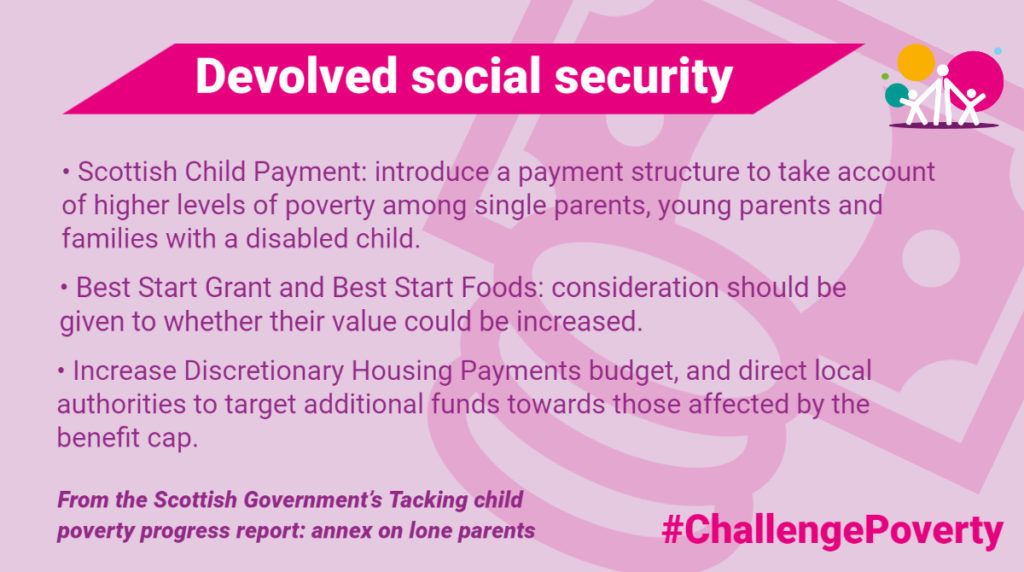
- Scottish Child Payment: introduce a payment structure to take account of higher levels of poverty among single parents, young parents and families with a disabled child.
- Best Start Grant and Best Start Foods: consideration should be given to whether their value could be increased.
- Increase Discretionary Housing Payments budget, and direct local authorities to target additional funds towards those affected by the benefit cap.
Internet access
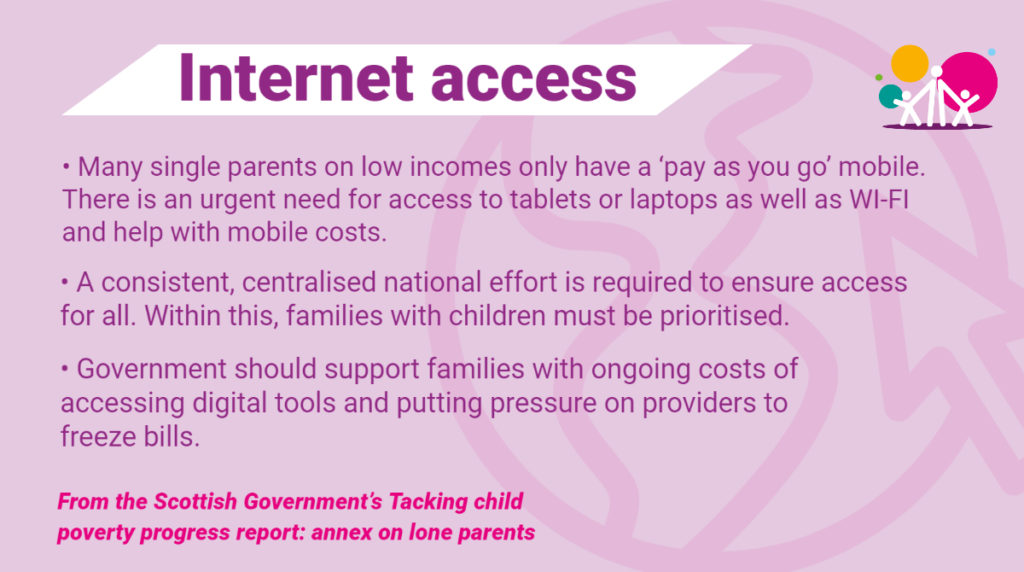
- Many single parents on low incomes only have a ‘pay as you go’ mobile. There is an urgent need for access to tablets or laptops as well as WI-FI and help with mobile costs.
- A consistent, centralised national effort is required to ensure access for all. Within this, families with children must be prioritised.
- Government should support families with ongoing costs of accessing digital tools and putting pressure on providers to freeze bills.
Employment
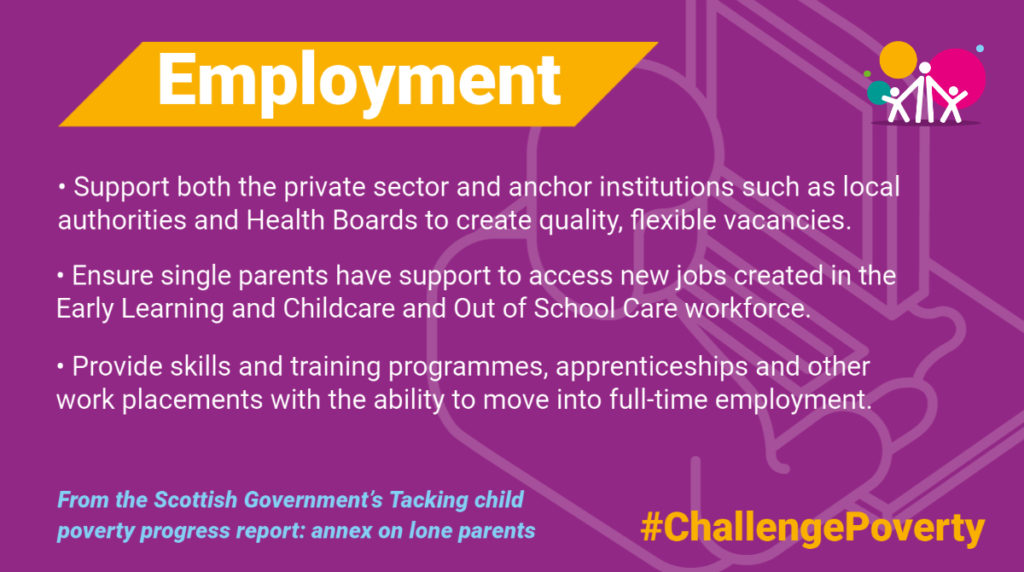
- Support both the private sector and anchor institutions such as local authorities and Health Boards to create quality, flexible vacancies.
- Ensure single parents have support to access new jobs created in the Early Learning and Childcare and Out of School Care workforce.
- Provide skills and training programmes, apprenticeships and other work placements with the ability to move into full-time employment.
Cost of the school day
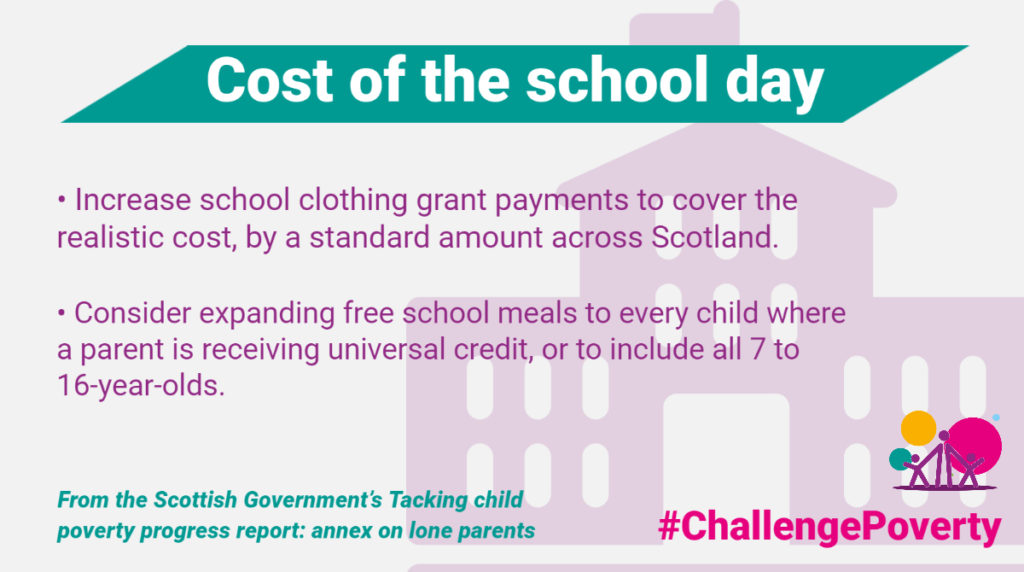
- Increase school clothing grant payments to cover the realistic cost, by a standard amount across Scotland.
- Consider expanding free school meals to every child where a parent is receiving universal credit, or to include all 7 to 16-year-olds.
Childcare
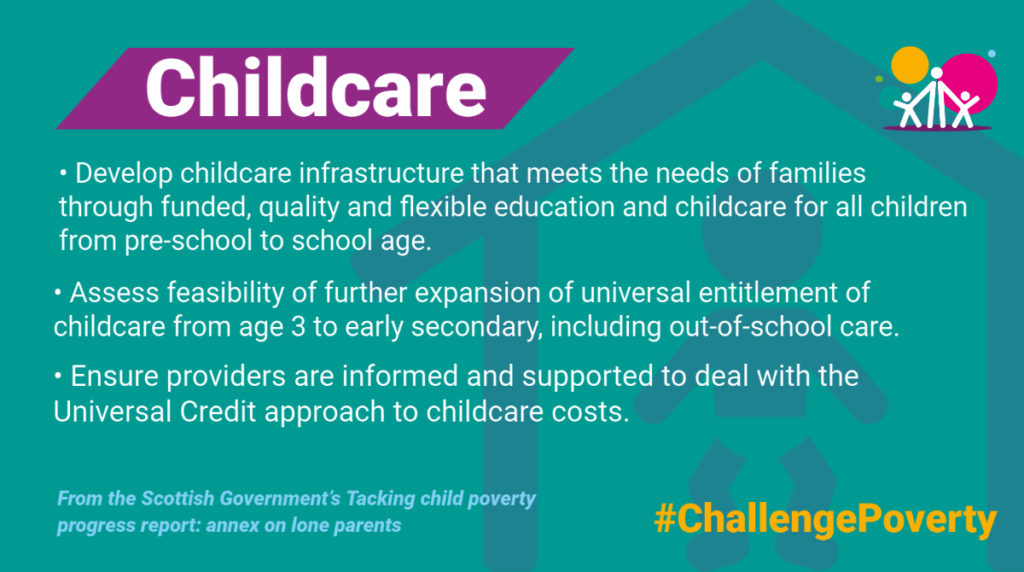
- Develop childcare infrastructure that meets the needs of families through funded, quality and flexible education and childcare for all children from pre-school to school age.
- Assess feasibility of further expansion of universal entitlement of childcare from age 3 to early secondary, including out-of-school care.
- Ensure providers are informed and supported to deal with the Universal Credit approach to childcare costs.
Data on single parents
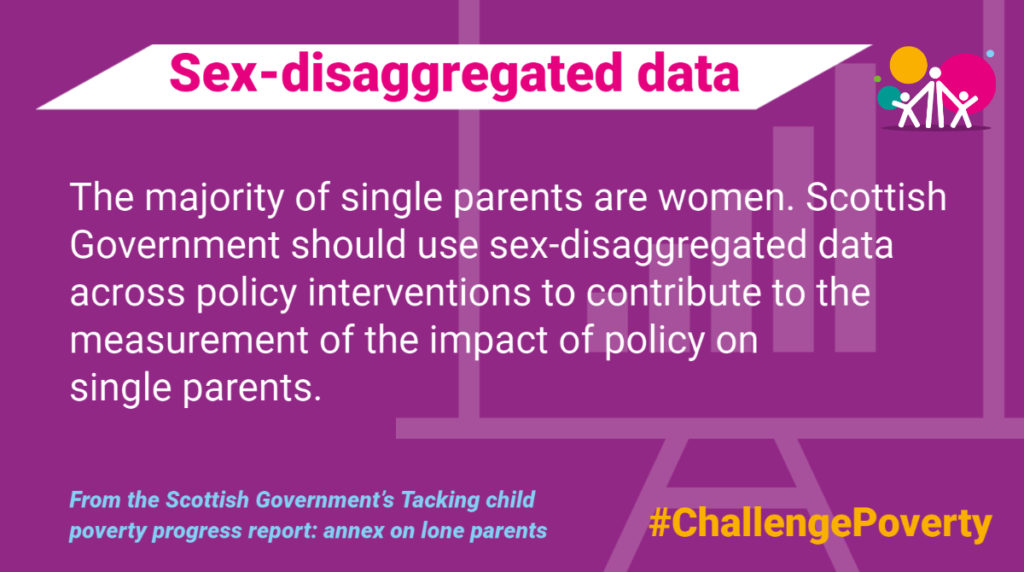
The majority of single parents are women. Scottish Government should use sex-disaggregated data across policy interventions to contribute to the measurement of the impact of policy on single parents.
Calls for Action: UK Government
Universal Credit reform
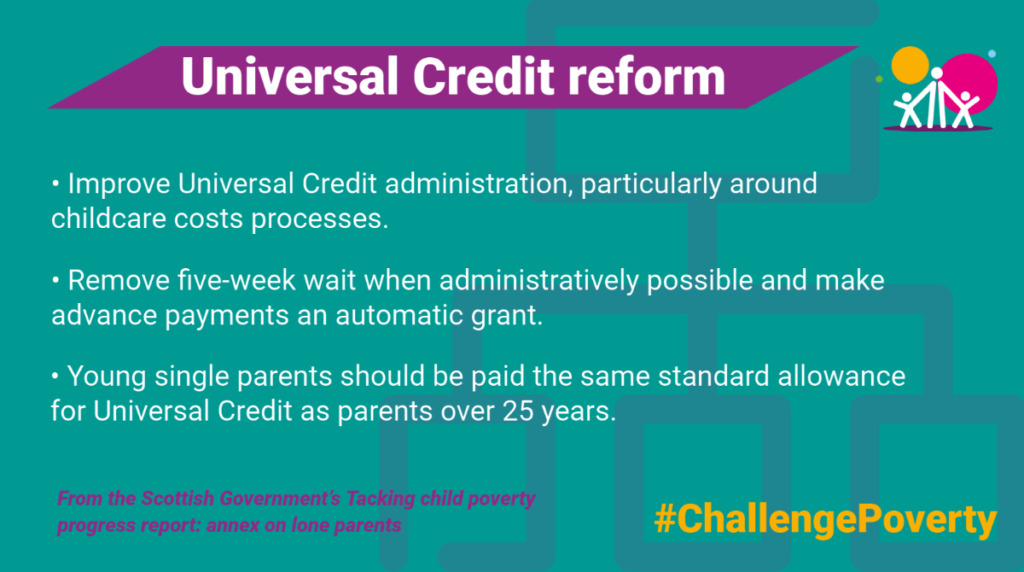
- Improve Universal Credit administration, particularly around childcare costs processes.
- Remove five-week wait when administratively possible and make advance payments an automatic grant.
- Young single parents should be paid the same standard allowance for Universal Credit as parents over 25 years.
Benefit and tax credit rates
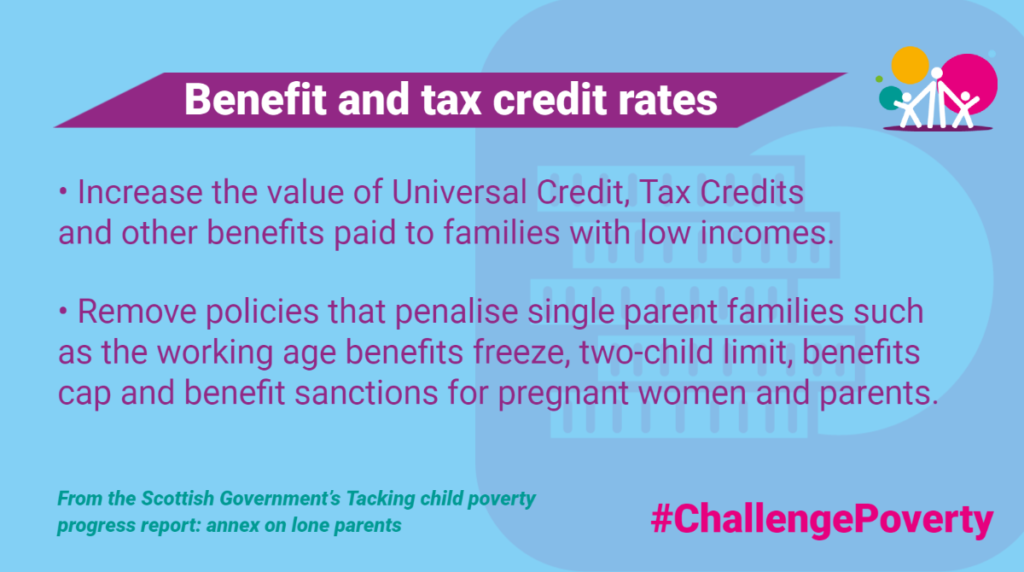
- Increase the value of Universal Credit, Tax Credits and other benefits paid to families with low incomes.
- Remove policies that penalise single parent families such as the working age benefits freeze, two-child limit, benefits cap and benefit sanctions for pregnant women and parents.
Child maintenance
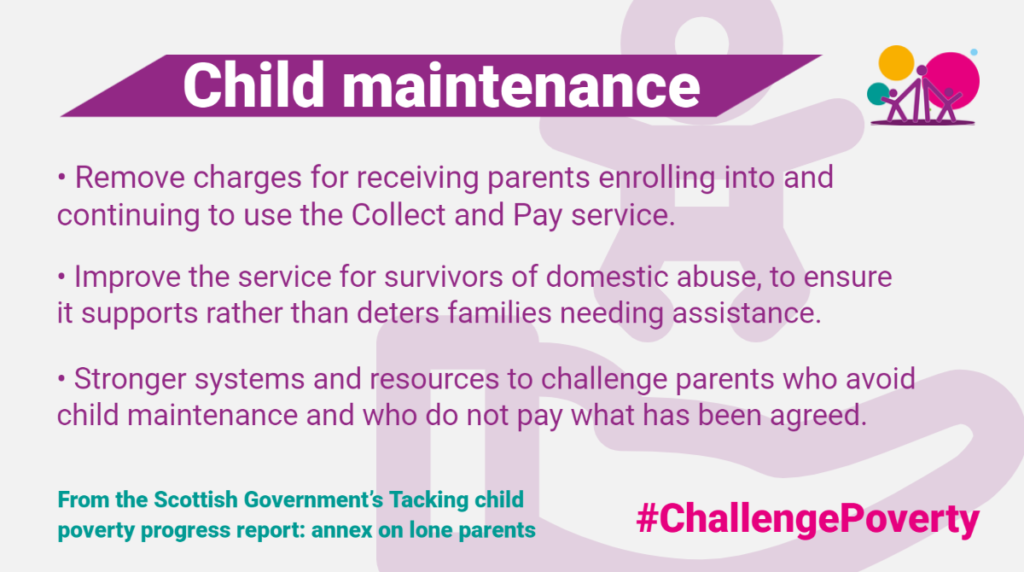
- Remove charges for receiving parents enrolling into and continuing to use the Collect and Pay service.
- Improve the service for survivors of domestic abuse, to ensure it supports rather than deters families needing assistance.
- Stronger systems and resources to challenge parents who avoid child maintenance and who do not pay what has been agreed.
- Craig Wilson, SCVO